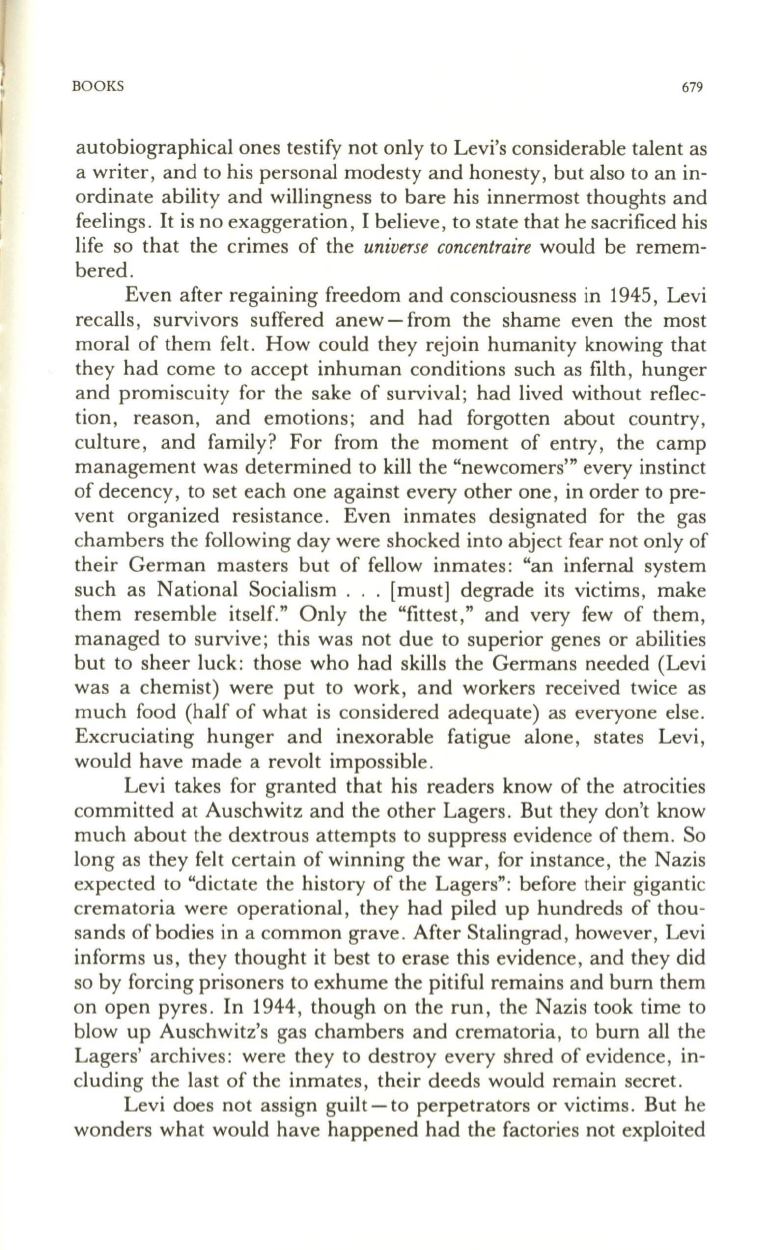
BOOKS
679
autobiographical ones testify not only to Levi's considerable talent as
a writer, and to his personal modesty and honesty, but also to an in–
ordinate ability and willingness to bare his innermost thoughts and
feelings. It is no exaggeration, I believe, to state that he sacrificed his
life so that the crimes of the
universe concentraire
would be remem–
bered.
Even after regaining freedom and consciousness in 1945, Levi
recalls, survivors suffered anew-from the shame even the most
moral of them felt. How could they rejoin humanity knowing that
they had come to accept inhuman conditions such as filth, hunger
and promiscuity for the sake of survival; had lived without reflec–
tion, reason , and emotions; and had forgotten about country,
culture , and family? For from the moment of entry, the camp
management was determined to kill the "newcomers'" every instinct
of decency, to set each one against every other one, in order to pre–
vent organized resistance. Even inmates designated for the gas
chambers the following day were shocked into abject fear not only of
their German masters but of fellow inmates : "an infernal system
such as National Socialism . .. [must] degrade its victims, make
them resemble itself." Only the "fittest ," and very few of them,
managed to survive ; this was not due to superior genes or abilities
but to sheer luck: those who had skills the Germans needed (Levi
was a chemist) were put to work, and workers received twice as
much food (half of what is considered adequate) as everyone else .
Excruciating hunger and inexorable fatigue alone, states Levi,
would have made a revolt impossible .
Levi takes for granted that his readers know of the atrocities
committed at Auschwitz and the other Lagers. But they don't know
much about the dextrous attempts to suppress evidence of them . So
long as they felt certain of winning the war, for instance, the Nazis
expected to "dictate the history of the Lagers": before their gigantic
crematoria were operational, they had piled up hundreds of thou–
sands of bodies in a common grave. After Stalingrad , however, Levi
informs us, they thought it best to erase this evidence, and they did
so by forcing prisoners to exhume the pitiful remains and burn them
on open pyres. In 1944, though on the run, the Nazis took time to
blow up Auschwitz's gas chambers and crematoria , to burn all the
Lagers' archives: were they to destroy every shred of evidence, in–
cluding the last of the inmates, their deeds would remain secret.
Levi does not assign guilt - to perpetrators or victims. But he
wonders what would have happened had the factories not exploited


